Before I tell you about the time I struggled to hold back tears while hunkered down on the floor of the children’s section at Barnes n’ Noble, barricaded by books carrying the weight of American history, defending this parenting decision for our multiracial children from the steady stream of insecurities running through my head, let me back up to the moment that started it all; to when I realized it was time to finally discuss slavery and MLK with our Kindergartner.
We were hanging out at our neighbor’s house one afternoon, watching the newest collection of Disney short films on Netflix, when the story of John Henry – a freed slavery who worked tirelessly on the railroads and died because of it – came on. Immediately after the film, Alina asked, “but why did he have to work so hard? I don’t understand.”
I sat there in silence, looking to my friend, who was equally unsure of what to say. Moments felt like an eternity as I stared at my baby girl’s innocence beat down with each slug of John Henry’s sledge hammer. The next short film started and Alina’s attention was diverted, but it was too late. My mind was made up.
I would not sit idle and allow the world to haphazardly educate my daughter on such a huge part of American history and her own personal legacy.
Later that day my research began. I read every parenting article and research finding I could access online. This article on preparing black children for slavery lessons really struck a chord, as I could see my child being put in the exact situation. Ultimately though, the decision to have a meaningful discussion on slavery and MLK with our kindergartner had to come from both of her parents…
Me: I think we need to talk to Alina about slavery.
Dad: Um, why?
Me: We watched a cartoon about John Henry with [neighbor] and the kids….
Dad: Ohh, okay, I’m listening.
Me: Well you know how Alina is; she’s so sensitive and worries. I don’t want her to come across the topic at school or with her peers without the chance to process it privately. I don’t want her to feel victimized either, like she has to carry this giant weight without us or internalize it, you know? I just want us to be the ones to tell her. Plus, [neighbor] said they 100% talk about MLK in Kindergarten, so this discussion is going to happen regardless.
Daddy D, letting out a big sigh: I guess you’re right. But let’s keep it G-rated, okay? I don’t need her growing up any faster than she already is.
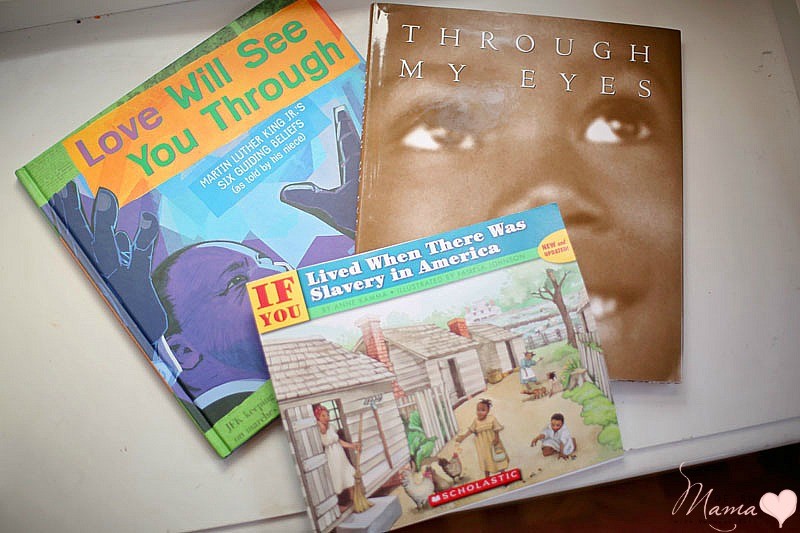 Multiracial Children + Slavery
Multiracial Children + Slavery
I guess that’s why I lost it that day, hunched over a sea of children’s books of glossy, bright illustrations depicting some the ugliest moments of American history. With my beautiful, black husband and our two innocent babies at home, my motherhood couldn’t hold the sorrow in any longer. Racism and prejudice is just so damn ugly.
My friends, I am so so sorry to tell you, but there is absolutely no way to have a G-rated discussion on slavery and MLK with your kindergartner. Try as I may to find “age appropriate” material on these topics, the jarring narrative always remained: the enslavement of so many black people, Martin Luther King Jr. and the Civil Rights Movement and MLK being shot dead because he believed black people should have equal rights.
As a non-black mother to a multiracial child, the realization that I was about to introduce the concept of racism to my child suddenly made me incredibly sick.
Thoughts on Mothering Tough Conversations
We have a unique journey in mothering and it’s painfully obvious in moments of tough conversations like this. When it comes to slavery, MLK and racism, our children come to understand that skin color impacts more than the just the crayons they pick to draw their family or the blending of their own biracial identity. It’s a sad lose of innocence, I think, to learn their father or mother or they are sometimes treated differently because of how they look. It’s a perspective I’ve shielded from my daughter by curating a bubble of family and friends who have similar values. Until today…
Here are some thoughts on mothering through discussions on slavery, MLK and racism…
- Of the various books available, I finally chose three and used each one in different ways. This one, Through My Eyes by Ruby Bridges, about a 6 year old girl starting school in a formerly segregated school is filled with photography of the event and prompted great conversation. It helped her visualize our discussion as real life versus a cartoon or caricature, as well as what it was like to be a little girl “back then”. I did not read the entire book to our daughter, only paraphrased parts she seemed interested in while looking at the photos.
- The second book, If You Lived When There Was Slavery in America, is difficult for anyone to stomach, let alone young, black and multiracial kids. I’m warning you now. I purchased this book for one simple reason: the illustrations left nothing to the imagination. Renderings of black slaves being treated like cattle, hoards of black faces on boats, mothers and babies being ripped apart by slave owners, crosses being burnt on lawns… all of it was there. Additionally, the book served as a resource with a timeline and informative graphics that helped us speak accurately about that time period. We reviewed the timeline to appreciate how long ago slavery was, making it feel removed from my Kindergartner. She held the book, looked over the photos and we answered her questions with uncomplicated answers. Though we didn’t actually read any of this book to her, it helped facilitate the beginning of a conversation we’ll likely have again as our kids get older.
- Both books listed above are not in our kids’ day-to-day library, nor are they accessible to them without our supervision. Though we want to empower our Kindergartner, the intention is not to obsess on racism or injustice at this age.
- Don’t be naive and skirt around the obvious: black people were enslaved by white people. The images our children see in relation to slavery and MLK will only reinforce this, so be direct and reassuring. Alina kept glancing at her dad, who continually reminded her how strong he is. Slavery is a horrible part of our past, but because of the works of some amazing people and movements, things are much different now. Yes, not perfect, but for the purpose of introducing these topics to our kindergartner, she needs to know that she’s not a victim. We’re a strong mixed race family with ample opportunities and many blessings. I don’t want the modern rhetoric of slavery and injustice to provide excuses her our kids’ personal greatness.
- As the conversation ended, my husband and I took the time to tell her how diligent in ensuring the people we surrounded ourselves with are good. We told her that our people – our neighbors and friends and family – are good. Racism, whether subversive or indirect, are not tolerated. Respecting one’s culture, religion and language shows the character of a person and that’s how we judge those we choose to keep in our lives. We told our daughter that good and bad comes in all skin colors, and that judging people by their actions and words is the best way.
- The only book I’ve kept within reach of her little mind is the beautifully illustrated Love Will See You Through: Martin Luther King Jr.’s Six Guiding Beliefs (as told by his niece). It was the closest “happy ending” I could find. Ideals like “love you enemies” and “fight the problem, not the person who caused it” help a little girl to see that, despite this sad time in history, there are people (white and black people) that have courage to change things. It’s a great book and I recommend all mothers to own it, allowing your babies to thumb through and see a black man virtuously working for change.
Though I struggled with whether we should have this conversation or not, the day our Kindergartner came prancing home and proclaimed, “My English teacher talked about MLK today!”, I knew we made the right choice. It could have easily turned out another way, with tears and even more innocence lost. She felt empowered and was not at all surprised during her school’s lesson on civil rights and slavery.
And when I asked her if she said anything about MLK at school, she said, “YES! I told my teacher that I learned about Saint Martin Luther King at home and that he was non-violent and wanted everyone to love each other and stop being mean.”

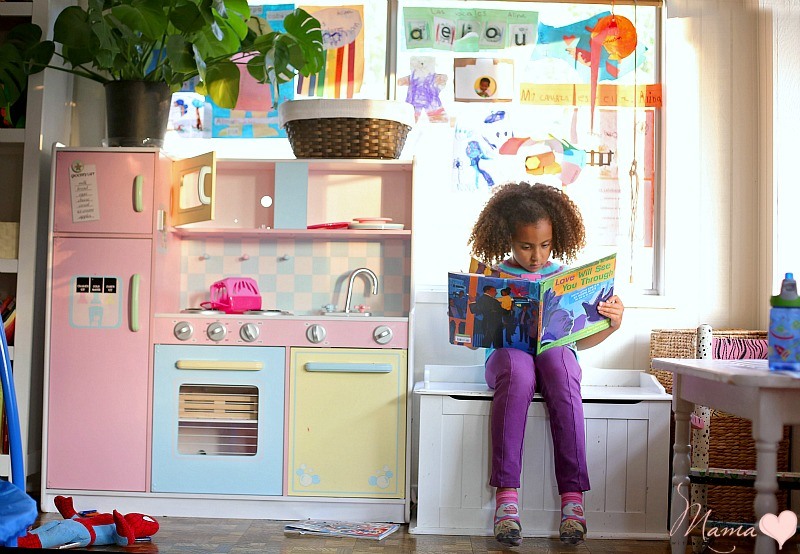
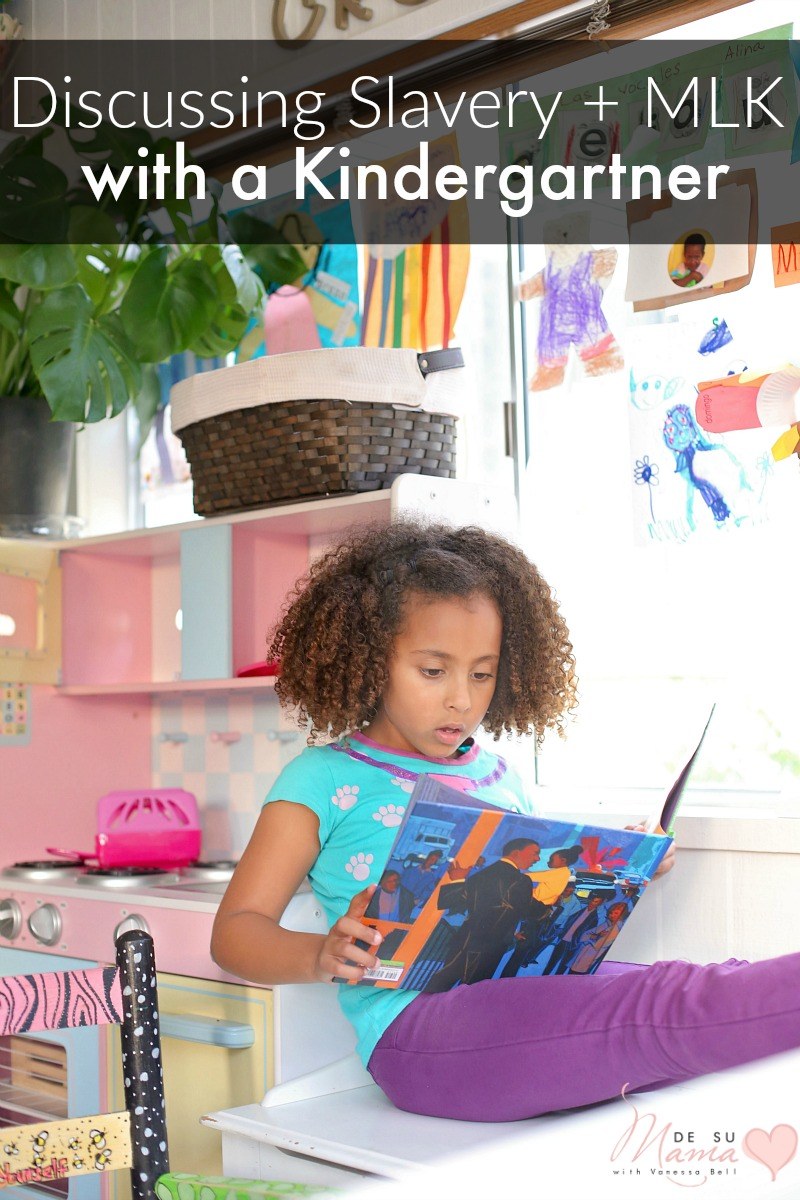
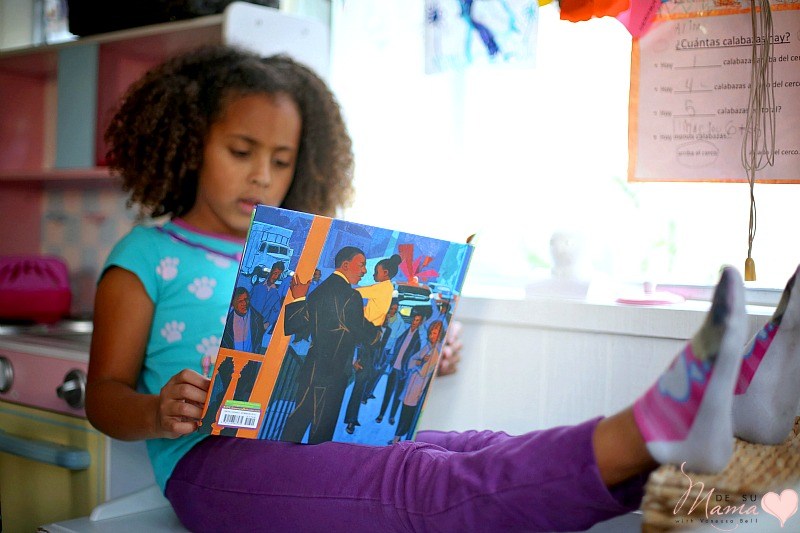
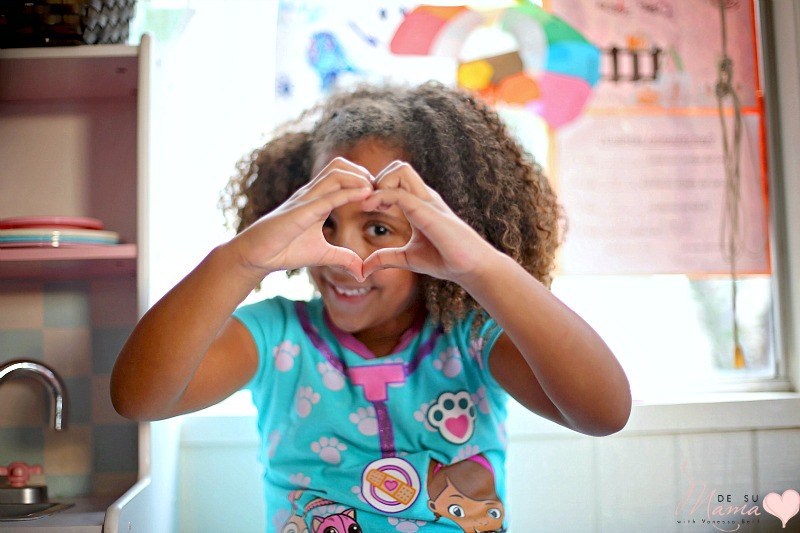
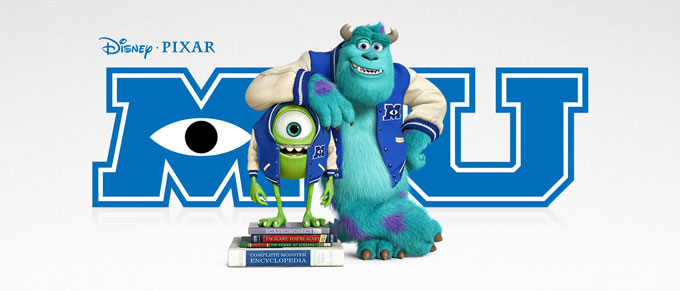
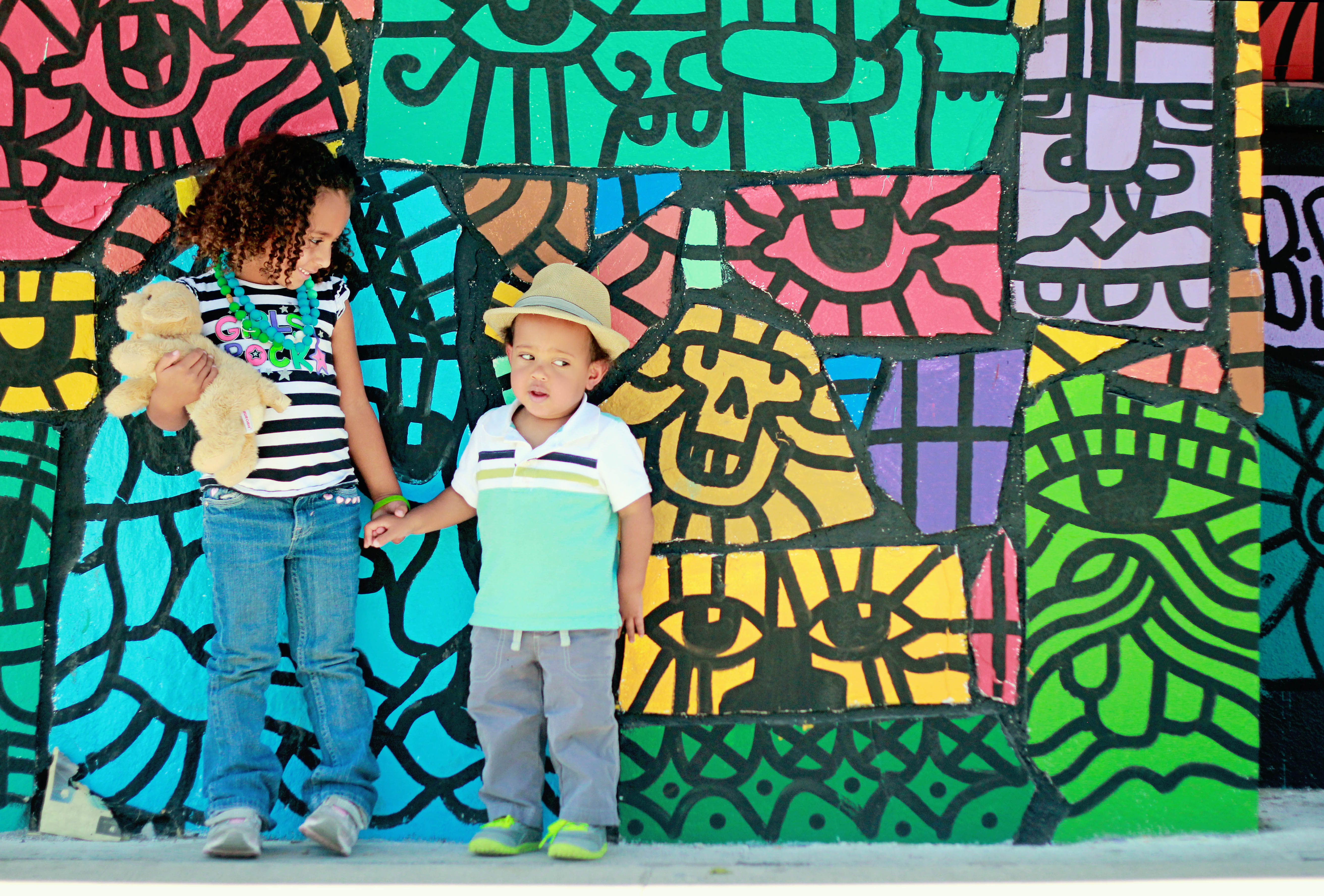
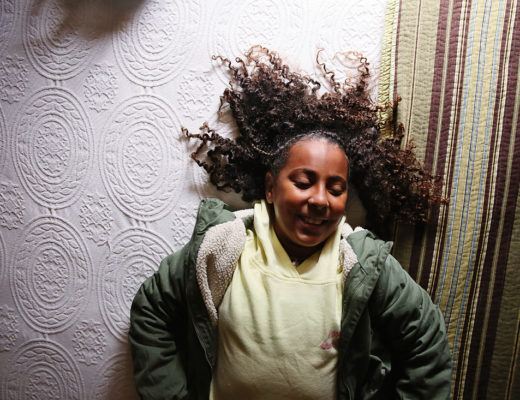
2 Comments
Robert Waters
January 18, 2016 at 12:21 pmOoh, a difficult subject. Here in South Africa I face a similar challenge with the legacy of apartheid. I found a great book to read with the children called “Journey to Joburg” which follows two young Setswana children as they go to fetch their mother working in Johannesburg (200km away) because their baby sister is sick. As the story progresses, the book includes timely references to life under apartheid and how people of colour were treated differently from whites, but because it also includes the story of children searching for their mother to help their sister it means that my children didn’t have to dwell on just the injustices of apartheid. I’m currently screen reading “Dancing in the dust” but I think the kids need to be older for this one.
I’m still unsure as to whether it is better for the black parent or the white parent to take the lead in these discussions, although I lean towards the black parent doing so. Ultimately as a white person you can never fully understand what it’s like to be of colour, even after twenty+ years of living in a multiracial relationship and seeing racism on a daily basis. So I worry whether I can really discuss this with my kids as effectively as their mother can (although I’m damn sure that I’ll do a better job than a white teacher, so I don’t beat myself up over it).
Vanessa Bell
January 20, 2016 at 6:26 pmHi Robert, I really appreciate your comment and totally agree! Though I’m not white (I’m Hispanic), I could never truly speak on the black American experience. In our family, however, I think my kids would have thought the world was coming to an end if dad brought up this discussion! He was right there, though, nodding his head, answering questions and ultimately ensuring that the kids felt safe and protected. He’s a WONDERFUL daddy, but also a man of few words. I will look into your book recommendation, too!